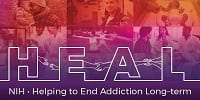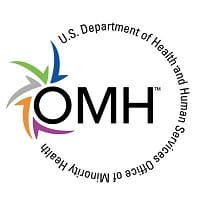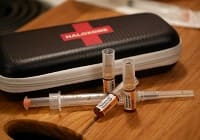
Youth and Young Adults Increasingly Relying on Emergency Department for Psychiatric Care
September 6, 2019
The number of Emergency Department (ED) visits for psychiatric concerns among people aged 6-24 increased by 28% between 2011 and 2015, according to the National Hospital Ambulatory Medical Care Survey. Especially significant increases in psychiatric ED visits were seen among adolescents (aged 12-17) and Hispanic patients. This represents a growing need for mental health care and crisis management in ED settings, which are often poorly equipped for these situations — only 16% of patients in the study population were seen by a mental health professional. For more information, please visit the Suicide Prevention Resource Center.

Trends in SAMHSA Annual Data Release Emphasize Importance of Treating Dual Diagnosis
August 20, 2019
The Substance Abuse and Mental Health Services Administration (SAMHSA) has released the 2018 edition of the National Survey on Drug Use and Health, the nation’s primary resource for data on mental health and substance use in the United States. Encouraging trends include decreases in the use of tobacco and alcohol by pregnant women, the use of illicit drugs by young adults and the misuse of pain relievers overall. A notable area of concern is in co-occurring conditions. Approximately 9.2 million adults experienced both a mental illness and a substance use disorder in 2018. To learn more, please visit the SAMHSA website.

Research Shows Inconsistencies in Jail Mental Health Assessment Tool
August 5, 2019
When individuals are booked into a county jail they are commonly evaluated for current psychiatric symptoms and mental health history using the Brief Jail Mental Health Screen (BJMHS). To test the reliability of the BJMHS, researchers analyzed 3.5 years of data from a single large jail. The analysis showed that a person who had been booked into the jail and screened multiple times was more likely to be referred for further evaluation and treatment with each additional screening — and not because of different answers. This indicates that the BJMHS may be sensitive to reporting bias, and therefore not a consistently reliable tool. To learn more, please see the study abstract.

New Research Aims To Improve Treatment Of Opioid Use Disorder In Criminal Justice Settings
July 24, 2019
NIH has announced the formation of the Justice Community Opioid Innovation Network (JCOIN) to support research on quality addiction treatment for opioid use disorder (OUD) in criminal justice settings. Individuals with OUD who are incarcerated often struggle to access appropriate treatment, putting them at increased risk for relapse or overdose when they transition back to their communities. As part of the NIH HEAL (Helping to End Addiction Long-Term) Initiative, JCOIN will establish a national network of investigators working to improve intervention and treatment strategies for this population. To learn more, please visit the NIH website.

Telepsychiatry Significantly Increases Children’s Access to Mental Health Treatment
July 15, 2019
Nearly half of all children with mental health conditions in the U.S. do not receive treatment. Many states have established telephone hotlines that allow primary care doctors to virtually consult with a child psychiatrist, reducing the need for specialist appointments. Using data from the National Survey of Children’s Health, NIH-funded researchers at the RAND Corporation have shown that children living in states where this service is available are more likely to receive mental health care. This evidence supports further expansion of telepsychiatry to reduce the treatment gap. To learn more, please visit the RAND website.

SAMHSA and CMS Issue New Guidance For States And Schools To Support Student Mental Health
July 1, 2019
SAMHSA and CMS have jointly released a new resource bulletin for educators, advocates and administrators preparing for the coming school year. Schools can fill a critical role in identifying children and adolescents who are experiencing mental health or substance use issues and connecting them to necessary treatment and support. SAMHSA and CMS provide examples of school-based services, identify applicable Medicaid state plan benefits and summarize best-practice models for implementing mental health services for students. To download the guide, please visit the SAMHSA website.

Language Patterns May Predict Episodes Of Psychosis In At-Risk Individuals
June 25, 2019
By studying the behaviors and experiences of at-risk individuals, researchers hope to identify signs of an oncoming episode of psychosis. Past research indicates that language patterns are one such sign. A new study used a machine learning system to analyze the speech patterns of 30 young people at risk of developing psychosis and 30,000 contributors to the social network site Reddit. The machine learning system was able to predict which at-risk individuals would develop psychosis in the following two years with 93% accuracy. This represents a major opportunity to intervene and potentially prevent poor outcomes for at-risk individuals. To learn more about this study, please visit the NIH website.

Upcoming Clinical Trial Investigates Genetic Testing For Depression Treatment Planning
June 5, 2019
Pharmacogenomics is the study of how genes affect a person’s response to medications. When the interaction between a specific gene variant and a medication is well-understood, genetic testing can help a prescriber select which medication is most likely to be effective. This could be a significant improvement for people seeking treatment for depression, as they often try multiple medications before finding one that is effective. Beginning in 2020, the National Human Genome Research Institute will conduct clinical trials to determine whether genetic testing improves the efficacy of prescribing medications for chronic conditions, including depression. To learn more about the trials, please visit the NIH website.

HHS Office of Minority Health Launches New Online Cultural Competency Training Program
June 1, 2019
A new training program from The U.S. Department of Health and Human Services Office of Minority Health is now available online. The free four-course program for behavioral health professionals is designed to improve cultural and linguistic competency. Participants will learn basic concepts of cultural identity, increase self-awareness of their own identity and learn how to build stronger therapeutic relationships with clients from diverse backgrounds. Licensed alcohol and drug counselors, nurses, psychologists, psychiatrists and social workers can receive 4–5 contact hours for completing the program. To learn more, please visit the HHS website.

Easier Access to Naloxone Linked to Fewer Opioid Deaths
May 14, 2019
Naloxone is a medication administered by nasal spray or injection to reverse opioid overdose. In some states, a doctor must prescribe naloxone. In other states, pharmacists have the authority to dispense naloxone without a prescription to certain people—for example, people who are enrolled in a treatment program for substance abuse. Between 2013 and 2016, nine states instituted laws to allow pharmacists to dispense naloxone without a prescription to anyone who requests it. A new study shows that these states experienced the sharpest decrease in fatal opioid overdoses—an average 27% reduction in deaths in the first year after passing the law. To learn more about this study, please visit the NIH website.

